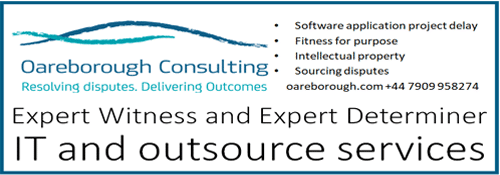On 1st October 2023 the Civil Procedure Rules (CPR) introduce a new intermediate track and fixed recoverable costs (FRCs) for certain claims valued between £25,000 and £100,000. The new rules apply to cases where proceedings are issued on or after 1st October 2023, save for personal injury. (The new FRC will apply to personal injury claims where the cause of action accrues on or after 1st October 2023; and will only apply to disease claims where the letter of claim has not been sent to the defendant before 1st October 2023.)
Importantly Rule 28.14.3(c) imposes a maximum size for Expert Witness Reports prepared for cases in the intermediate track:
Directions
28.14.
(1) The matters to be dealt with by directions under rule 28.2(1) include
(a) disclosure of documents;
(b) service of witness statements;
(c) expert evidence;
(d) whether to fix a pre-trial review; and
(e) listing the case for trial.
(2) The following provisions apply in respect of directions in the intermediate track
(a) oral expert evidence is limited to one witness per party, save where the oral evidence of a second expert for any party is reasonably required and is proportionate; and
(b) the trial time estimate must not exceed 3 days.
(3) The following provisions apply in respect of directions in the intermediate track, unless the court orders otherwise
(a) rules 28.2(3) and (4) apply in respect of disclosure;
(b) the total length of all the permitted witness statements and witness summaries of a party shall not exceed 30 pages; and
(c) any expert report shall not exceed 20 pages, excluding any necessary photographs, plans and academic or technical articles attached to the report.
The aim of this reform is to ensure that legal costs are more certain and proportionate across a wider range of civil claims, and to enhance the efficiency and cost-effectiveness of litigation. It follows Sir Rupert Jackson’s original recommendation when he published his 2nd report in 2017.
The new intermediate track applies to cases that meet the following criteria:
- The claim is for monetary relief only (no injunctions or specific performance).
- The claim is not suitable for the small claims track or the fast track.
- The claim is not one of the excluded types of claims listed in CPR 26.9(10), such as clinical negligence, abuse, or human rights claims.
- The trial is likely to last no more than three days, with no more than two expert witnesses per party giving oral evidence.
- The issues in the case are not complex or novel, and do not require extensive disclosure, witness evidence, or expert evidence.
The court will allocate cases to the intermediate track based on the information provided by the parties in their statements of case and directions questionnaires. The court will also have the power to re-allocate cases from or to the intermediate track if it considers it appropriate.
The intermediate track features a simplified procedure, which includes stricter case management and FRCs. The key features of this procedure are as follows:
- The court will give directions for the management of the case at an early stage, and will monitor compliance with those directions.
- The parties will be required to file and serve their witness statements and expert reports at the same time, unless otherwise ordered by the court.
- The parties will be limited to relying on no more than two expert witnesses per party, unless otherwise ordered by the court.
- The parties will be required to exchange lists of issues, a chronology, and a case summary at least 14 days before the trial.
- The trial will be conducted on a “cards on the table” basis, with no surprises or ambushes.
- The parties will be subject to FRCs for each stage of the litigation process, which will vary depending on the complexity band and the geographic location of the case. The FRCs will cover both solicitors’ fees and disbursements, including experts’ fees.
The FRCs regime has important implications for expert witnesses, as follows:
- Experts will need to agree their fees with the instructing party in advance, and ensure that they are within the FRCs limits for their type of case and complexity band.
- Experts will need to comply with the court’s directions and timetable for producing their reports and giving oral evidence, as any delay or non-compliance may result in sanctions or costs consequences for the instructing party.
- Experts will need to cooperate with other experts in their field, and attempt to narrow down the areas of disagreement before the trial.
- Experts will need to be prepared to give concise and clear oral evidence at trial, as they may face strict time limits and robust cross-examination.
For more information, please refer to The Civil Procedure (Amendment No.2) Rules 2023 and The Civil Procedure (Amendment No.3) Rules 2023, which contain the full text of the rule amendments.




